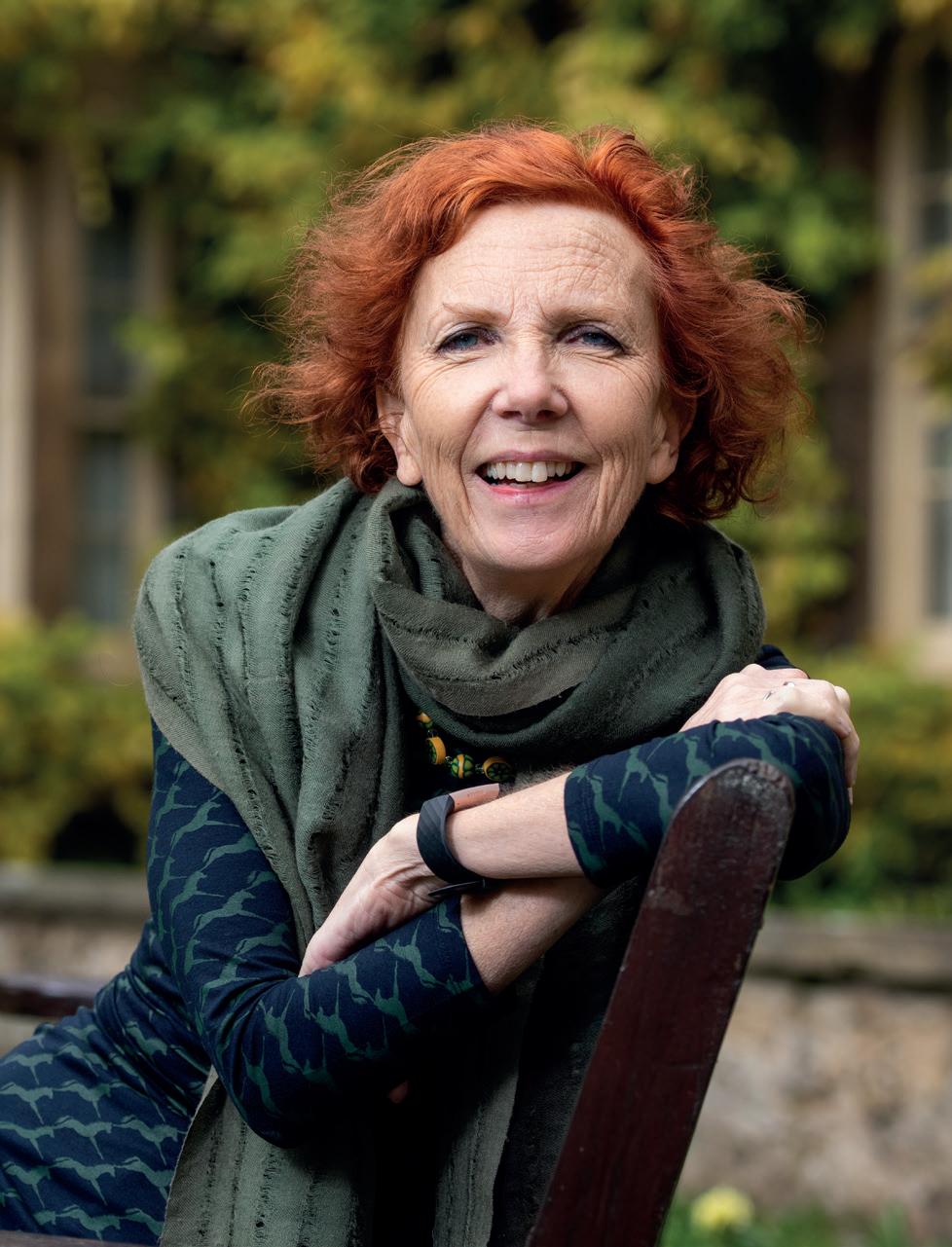
2 minute read
Principal’s Message
The past year has been unprecedented for Oxford and the world – a time of historic innovation as well as unparalleled adversity. To look at the road ahead, meanwhile, is to know that these upheavals are far from over – but let’s not despair just yet.
If the last year at Somerville has taught me anything, it is that we always have a choice: we can give in to despair, to the voice that says there is nothing to be done. Or we can defy it by creating new knowledge, new relationships and new spaces in which knowledge and hope can grow.
Advertisement
In a sense, this is what Somerville has always done, driven by our core belief that knowledge should always benefit others. But the stakes were so much higher this year, and the impact so much greater, as Somervillians from all across our community stepped forwards to be counted in the essential struggles of the day.
Who can fail to marvel, for example, at the story told by Dr June Raine (1979, Physiology) of the vaccine approval process in which she played such a decisive role? Under her guidance, science, strategic partnerships and ethics all came together to create a new global standard for public health.
Sometimes knowledge can be painful. And yet the directors of Two Distant Strangers, Travon Free and Martin Desmond Roe (1998, Lit. Hum.), were unequivocal in believing that only by confronting us with the horrifying truth of racially motivated police violence could we change our thinking on the issue. Their bravery earned them an Oscar, but the greatest legacy of the film is surely the change it will bring.
Creating a safe space in which knowledge and hope can grow together has always been important to Somerville. But has it ever seemed more important than today, as we watch the unfolding humanitarian crises in Afghanistan, Yemen and beyond? That is why our College’s successful bid to become the UK’s first College of Sanctuary, alongside our sister institution, Mansfield College, is so timely.
As a College of Sanctuary, we will galvanise our founders’ determination to include the excluded by making Somerville a place of refuge and opportunity for at-risk students and academics from around the world. You can read more about that important work in our interview with the Yemeni neuropathologist Dr Anwar Masoud (‘Somerville and Sanctuary’). The transformative power of knowledge faces few greater challenges today than climate change. It is a source of both relief and inspiration, therefore, to see our researchers, lawyers, student-activists and whole-college committees bringing to bear the combined weight of their learning and passion on this subject – all of which you can read about in our special ‘Sustainability at Somerville’ insert.
Finally, we have two profiles on current students. Pratishtha is an activist whose advocacy for People with Disability has taken her from the streets of Delhi to the floor of the UN; Rosie is an athlete who trained through the darkest months of lockdown to gain a spot in the Lightweight Boat Race.
Two very different women, then, in whose implacable refusal to despair we find ample cause not merely for hope, but the expectation of better days.










